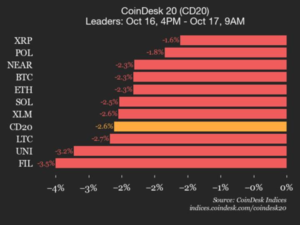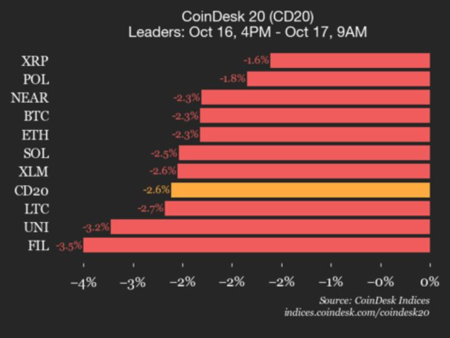The Transformation of Corporate Treasury Management: Embracing Bitcoin
The corporate treasury function, long characterized by cautious cash management practices, is witnessing unprecedented changes, primarily driven by increasing interest in cryptocurrencies, notably Bitcoin (BTC). This shift, which began with Michael Saylor’s firm becoming a substantial player in the Bitcoin treasury landscape, has since expanded as corporate treasuries collectively amass over one million BTC, valued at over $120 billion as of October 2025. Companies are increasingly recognizing that in an era marked by monetary debasement, holding finite and non-counterparty assets like Bitcoin is not just a strategy; it’s an essential move to protect shareholder value and ensure future growth.
The Case for a Bitcoin Treasury
Corporate treasuries have traditionally relied on cash reserves, yet this approach risks underperformance amid rampant money-printing, leading to significant depreciation of cash value. Bitcoin represents a tangible alternative that offers a counter to inflation, with its finite supply and historical track record of appreciating in value over time. Holding Bitcoin allows firms not only to protect their capital but also to leverage capital markets effectively. As companies accumulate Bitcoin, they can raise equity at premium prices to their net asset value (NAV), optimizing leverage and enhancing shareholder returns through strategic market operations.
Building a Sustainable Business Model
Successful Bitcoin treasury companies can issue equity at a premium above NAV, increasing their Bitcoin per share (BPS). For instance, companies like Michael Saylor’s firm show how a well-executed Bitcoin treasury strategy can generate impressive yields without relying solely on market appreciation. This mNAV (market-adjusted NAV) phenomenon demonstrates how a structured financial approach can lead to substantial long-term gains for both the company and its stakeholders. The core of this strategy is maximizing Bitcoin yields while ensuring robust reporting and transparent investor communications, crucial during volatile market cycles.
The Role of Investor Sentiment
Investor sentiment plays a vital role in determining the success of Bitcoin treasuries. With fluctuating market conditions, firms must exhibit unwavering conviction in Bitcoin and consistently enhance their fundamentals. Companies able to generate transparent reports on their Bitcoin holdings and employ strategies to maintain their mNAV ratios are more likely to resist market downturns. As evidenced by companies experiencing share premium contractions during bearish cycles, the importance of a solid operational base cannot be overemphasized. Maintaining profitability while growing a Bitcoin reserve will ultimately shield companies from detrimental market sentiment.
Risks of mNAV Compression
Despite the advantages, Bitcoin treasury companies are not without peril. mNAV compression, a scenario where a company’s market value dips below its NAV, can trigger a cycle of dilutive capital raises that destabilize further growth. A number of Bitcoin-focused firms are already trading below their NAV, which signifies vulnerability. If left unchecked, this may lead to forced liquidations, weakening a firm’s market position. For example, even leading firms have seen significant drops in their market valuations, underscoring the necessity of embedding a robust operational framework that blends consistent revenue generation with Bitcoin accumulation for long-term sustainability.
The Future Outlook
The prospects for Bitcoin treasuries are promising as more companies begin to adopt Bitcoin into their financial frameworks. This integration has the potential to revolutionize corporate finance, benefiting shareholders and enabling businesses to thrive in an increasingly uncertain economic landscape. As more CFOs realize the benefits of a Bitcoin treasury, market acceptance will likely enhance, leading to greater infrastructure development around custody, reporting, and compliance in the Bitcoin ecosystem.
Conclusion
Embracing a Bitcoin treasury is increasingly becoming a requirement rather than a mere option for corporations in a world driven by monetary instability and inflation. As this trend continues to evolve, companies that strategically integrate Bitcoin into their financial management will not only protect their shareholder value but also establish resilient business models that thrive amid the challenges of a shifting economic paradigm. For corporations, the ability to navigate both the macroeconomic landscape and the nuances of the cryptocurrency market will define their future success, making a Bitcoin treasury an indispensable asset in their portfolios.

















